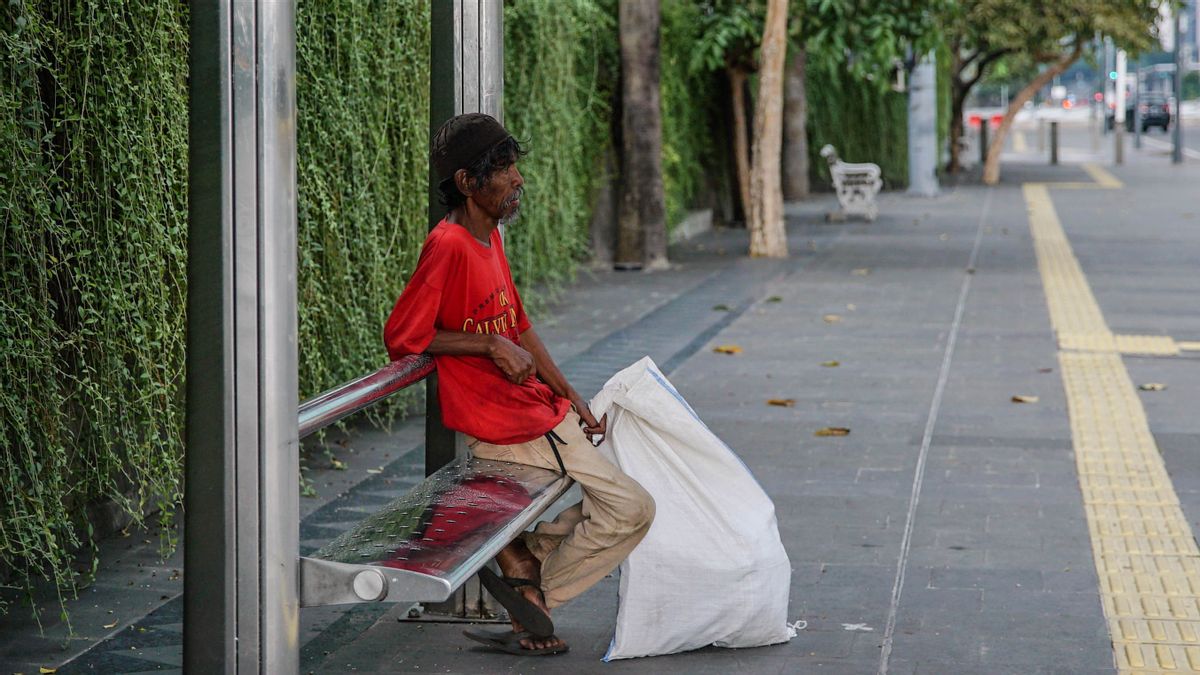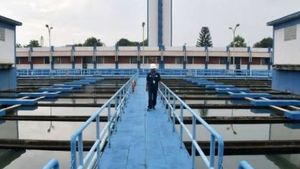JAKARTA - The Ombudsman of the Republic of Indonesia received 387 complaints regarding public services in the midst of the COVID-19 pandemic. The report is recorded through the COVID-19 Online Complaint Post provided by the Ombudsman.
"There are 387 reports of total complaints submitted until May 12 at 18.00 WIB," Ombudsman Chairman Amzulian Rifai said in a virtual press conference, Wednesday, May 13.
Of these, around 72 percent or 278 reports were related to social assistance related to the COVID-19 pandemic. Furthermore, as many as 23 percent or 89 public complaints were directed towards public services in the financial aspect. Then, there are 2 percent or 8 complaints related to transportation and health services and one percent or four complaints related to security.
The locations for complaints mostly came from the DKI Jakarta, Bogor, Depok and Bekasi areas, which amounted to 47 complaints or 12 percent.
Rifai said that complaints about social assistance were mostly due to the uneven distribution of aid and unclear procedures and conditions for beneficiaries.
"The procedures and requirements for beneficiaries are not clear, the community is in an emergency condition but not registered and vice versa, there are also those who are registered but do not receive assistance, they cannot receive assistance because of the ID of the migrant," he said.
Inaccurate data, said Rifai, is one of the problems in providing this social assistance. In fact, before this pandemic, the Ombudsman had reminded the government about the accuracy of the data.
Meanwhile, complaints in the financial aspect were mostly related to credit relaxation or relief which was deemed not maximal.
In addition, the suggestion to work from home actually increases electricity consumption and internet quota. These conditions, he said, made people sell their assets, borrow money online, or be forced to leave their homes in the midst of a pandemic.

Some time ago, Saiful Mujani Research and Consulting (SMRC) released a survey related to the effectiveness of social assistance. Of the 1,235 respondents who participated in this survey, 49 percent stated that social assistance during the COVID-19 pandemic had not been on target and this was considered worrying.
"This is worrying considering the large amount of funds disbursed by the government will only be meaningful when (social assistance) can reach people in need and in very dire conditions," said SMRC Executive Director, Sirojudin Abbas in a written statement.
From this survey, the assistance was deemed not on target because as many as 60 percent of respondents saw other citizens who were entitled but had not received social assistance. In addition, there are also 29 percent of respondents who know that social assistance is given to those who are not entitled to receive it.

The SMRC noted that only 21 percent of residents stated that they had received assistance in the midst of the pandemic. If you refer to the 2019 BPS Susenas data which states that the number of recipients of social assistance has reached 34 percent, then there are 13 percent of residents who have not received assistance.
When calculated from the total national population of around 271 million, there are 35 million people who have not received social assistance and this is a serious problem.
"This is a serious problem, because those who do not receive aid can starve, cannot afford treatment, cannot pay rent, and other urgent problems," said Abbas.
The English, Chinese, Japanese, Arabic, and French versions are automatically generated by the AI. So there may still be inaccuracies in translating, please always see Indonesian as our main language. (system supported by DigitalSiber.id)













